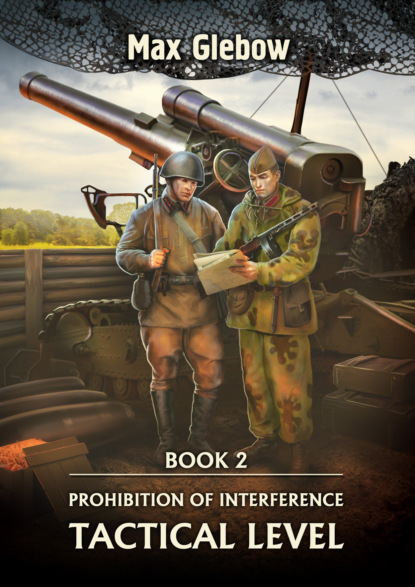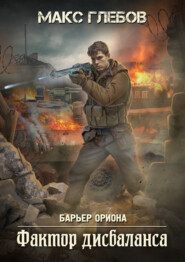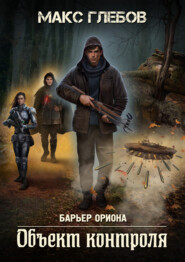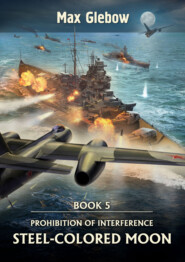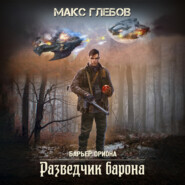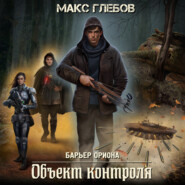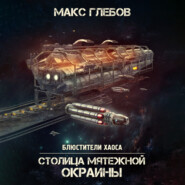По всем вопросам обращайтесь на: info@litportal.ru
(©) 2003-2024.
✖
Prohibition of Interference. Book 2. Tactical Level
Настройки чтения
Размер шрифта
Высота строк
Поля
“Give me a minute, Comrade Captain,” I asked, sinking to the grass.
The scouts stood silent, trying not to move. Even Hauptmann fell silent, unable to understand what was going on, while I carefully examined the front line and the no man's land between our trenches and the German trenches. What a pity we don't have a radio station… Now we could really use a diversionary attack or a heavy artillery strike on German positions, or better both. I'll have to be sure to take care of that in the future, if, of course, there is a future for us.
The Germans approached the execution of the received order with their usual punctuality. If there had been gaps between their positions before, now they were tightly covered by a dense network of posts. It'll be light in about 40 minutes, and if we're not out of here by then, we're dead. The infantry will comb the bridgehead, look under every bush and into every hole. They will find us, there is no doubt.
“That's a dead end, Comrade Captain,” I shook my head as I opened my eyes, “all the loopholes in the immediate vicinity are caulked up tight.”
“I have a last resort,” the Captain's voice sounded doubtful, ”a red and two white rockets. The Division Commander gave me permission to use this signal if we were returning with really valuable booty. Our troops will go on the attack, moving toward us, but the chances of success are still slim, and probably dozens of people will die in such an attack.”
I thought about it. There are five of us here, but someone will have to stay with the Hauptmann, so four of us can act. We are all armed with automatic weapons, and the German machine-gun position is a hundred meters in front of us. If we take this position, the enemy defense in this area will not collapse, of course, but it will be noticeably disrupted. The question is, how long can we last…
“Comrade Captain, I have an idea, but the risk is very high.”
“You want to seize the machine gun, Nagulin?" grinned the Captain crookedly, "I can see it in your eyes.”
I nodded silently.
“If we're going to die, at least we'll have fun,” Sergeant Ignatov said quietly.
“Remizov, you are responsible for the prisoner. Keep an eye on him and let him lie with his face in the ground, or he'll catch an accidental bullet and all will be for nothing. Follow us at a distance of 20 meters. Do not go into the trenches until we have cleared them of the enemy. Then you make a dash toward us and take cover immediately.”
“Copy that!”
“Nagulin, can you fight with your injury?”
“I'm fine now, Comrade Captain.”
“Well, lead the way, Junior Lieutenant, we'll start the knife action.”
* * *
Although the Germans had sounded the alarm, they still did not send all their personnel into the trenches in the middle of the night. They strengthened the posts, sent out patrols, but still, soldiers sometimes need to sleep, especially if they have to go into battle again tomorrow. The Germans successfully chose a place for their machine-gun position. The ravine, which stretched from east to west, cut in half a low hill, but it was not even a hill, just a flat knoll. Nevertheless, this height still provided control over the immediate area. The Germans did not dig trenches on the very top, so as not to loom in front of the Russians against the bright sky in the daytime, they descended a little lower, toward the no man's land, and set up a machine-gun nest almost on the edge of the ravine. On the right, a steep and slippery slope protected the machine gunners; it was extremely uncomfortable to be attacked, and on the left the main position of their platoon was located. This seemed reasonable in terms of defense against the enemy who was advancing from the east, but for us, especially given my capabilities, the situation looked different. We were moving from the west, from the German rear, and we could approach the enemy's position unnoticed, using the ridge as cover.
The German sentinel observers, invigorated by the uproar, were serving faithfully. One soldier stood behind the machine gun, the other strode around the trench, occasionally glancing both ahead, to the east, and west, in our direction. The third, and what I assumed to be the most dangerous, was the Feldwebel – sergeant major, who was closely inspecting the terrain in front of the position through binoculars. The trenches and passages zigzagged further to the left, and there were observers in them too, and quite a few of them. An entire squad served as a combat guard, one-third of the entire personnel, and to the left the section of the next platoon started, and there were a lot of soldiers there, too.
The Germans launched rockets and "chandeliers" of flare mines so that first of all, the no man's strip and the first line of our trenches were clearly visible. They did not want to illuminate their own rear, not wanting to make life easy for the Russian artillerymen and mortar men who were taking rare disturbing fire. Nevertheless, they still left the observer behind the crest of the hill, realizing that the Russian saboteurs would move from the second line of their defense. This soldier sat quietly in a small trench on the back slope of the hill, thinking it was almost impossible to see him in the dark. He died just as quietly – I had shown the Captain the position of this enemy beforehand.
Shcheglov gave the command to start the assault when the German trenches were only 20 meters away. This time I didn't take any chances and chose the Feldwebel rather than a soldier behind the machine gun as my first target. A knife that flew in from the darkness entered the German under his left shoulder blade, and he fell forward onto the parapet from behind which he had been watching. The binoculars gleamed in the glow of another "chandelier" and slid down the slope into the darkness below. As it did so, it made a rather loud bang, but it didn't matter – the machine gunner had already noticed the danger, so he became my second target.
20 meters is still a lot for a knife, especially if the target is not attached to the ground. The German dodged it! I don't think he had time to react to my knife throw. Rather, the fate of the Feldwebel told him the only correct course of action. The machine gunner ducked and crouched at the bottom of the trench, and the knife jingled loudly against the MG-34 mounting. The situation was corrected by Ignatov, who had already managed to overcome the distance to the German trench and jumped on the back of the enemy, who had begun to straighten up. I couldn't see how he handled the German, but it didn't take the Sergeant more than a couple of seconds.
Shcheglov and Nikiforov wasted no time either, they were busy working on their goals. There were no Germans left alive at the machine-gun position, but we could not do everything quietly, and the sounds that reached the neighboring trenches made the Germans wary.
A few sharp commands rang out, and some movement began in the trenches of the neighboring squad.
“Throw grenades into the ravine, quickly!” ordered Shcheglov, not forgetting about the Germans sitting in ambush.
I ripped a grenade from my belt, unpinned it and threw the F-1 over the edge of the ravine. I wasn't interested in its fate – I finally jumped into the trench and got to the machine gun. At the same time as the first long burst hit the left side of the enemy trenches and passageways, flares – two white and one red – flew up into the air behind me with a hiss.
A little ahead I saw flashes of gunfire and heard the distinctive crackle of PPSh submachine guns – my comrades had also opened fire. I distracted myself for a second, trying to figure out where we were most threatened. There was no movement in the ravine – our grenades seemed to have fallen well. The Hauptmann prisoner was lying at the bottom of the trench in a fetal position, and Remizov, standing above him, was firing his submachine gun toward the Germans.
The return fire now was still weak and inaccurate, but the enemy was quickly coming to his senses. The main thing that made me very unhappy was some kind of sluggish reaction to our signal on the Soviet side. I couldn't say nothing was going on there, but I wasn't seeing intense preparation for an attack there yet.
When I turned my attention back to the Germans, I saw a very unpleasant picture. The platoon whose position we were attacking had two more machine guns besides my MG-34, and now they were turning toward us. The machine gunners weren't firing yet, for fear of hitting their soldiers in the dark, but I knew that very soon they would figure it out and open devastating fire on us. Another serious problem was the dugout in the second line of trenches. It seemed to be where the rest of the soldiers of the platoon were sleeping, and now they were actively moving, leaving the shelter and obviously coming to visit us.
I heard Shcheglov's command: “Don't let them within grenade throwing distance!”
This command directly concerned me, too, but first I had to do something about the machine guns and the infantry rushing in. I took my last grenade off my belt. The Germans jumping out of the dugout were 80 meters away. Some of the soldiers were already out of the trenches, and some of them were still just leaving the shelter. I chose the trajectory so that the fuse burned out while still in the air, and the grenade exploded over the Germans' heads. It's hard to make a good grenade throw from a trench, but combat mode can do much more than that. My shoulder was sore – after all, my body hadn't fully recovered from the boat ride, and now the bio-implants had to strain my muscles again.
I had no time to follow the flight and explosion of the grenade. I picked up my MG-34 again and found the positions of the German machine gunners. They oriented themselves to the situation and opened heavy fire over the heads of their infantry, trying to pin the Russian saboteurs to the ground. Two short bursts silenced them, but the enemy had an overwhelming advantage over us even without machine guns.
A series of explosions rumbled about 50 meters from us, somewhere in the middle between the first and second lines of German trenches, it was a Soviet mortar battery that opened fire. That was great, but what we needed now was something else entirely – a quick attack on the section of the German platoon that we had disorganized, while simultaneously suppressing its neighbors to the right and left with artillery fire.
The night battle was spreading like wildfire. The Soviet mortar men's strike was immediately countered by their German counterparts. A little later the artillery got involved in the battle. The density of German fire increased as more and more enemy soldiers approached the battlefield. I tried my best to regulate their numbers with a machine gun, but the winding passages allowed the Germans to get closer and closer. Soon I was concentrating only on the most dangerous targets, namely, enemy soldiers already ready to throw a grenade. The consequence of my efforts was several explosions right in the enemy's battle lines – the grenade throwers I killed or wounded blew themselves up together with their own comrades. This somewhat dampened the ardor of the German infantry, but it cannot be said that our prospects became brighter – the Red Army soldiers from our trenches still did not rise to the attack.
“We have to get out of here, Nagulin!” I heard the voice of Shcheglov, who had been pushed back by the Germans along with Ignatov and Nikiforov almost to my position, “Looks like there won't be an attack!”
“If we get out of the trenches, we will be cut down at once, or destroyed by mortars in the field,” I shouted back without stopping to shoot.
“We're sure to get crushed here, but this way we'll have at least a chance!”
“Take the prisoner and retreat through the ravine! I'll cover you with machine gun fire. You will have a two or three minute head start.”
Shcheglov did not answer anything, but fiercely let out a long burst from his PPSh, slightly elevating over the parapet, and then shouted out: “Fighters, follow me! We're pulling back! Take care of the prisoner!”
This order did not apply to me. Shcheglov did not say any solemn words and preferred not to say goodbye at all, for which I was very grateful to him.
The Germans were lingering. They were still confident that the Russians weren't going anywhere and were pulling up their forces for another attack. I managed to reload my machine gun before the group left, and now I had a hundred rounds to spare, but I still would not have been able to withstand a simultaneous attack from different sides.
To the right, beyond the ravine, there were enemy soldiers, too, but they did not fire yet, for fear of hitting their own, while at the same time, they did not want to climb the mined slopes in the dark. The view from orbit showed the utter hopelessness of the situation. The Germans would have launched a decisive attack had it not been for the rather intense mortar and artillery fire from the Soviet side, but for now they waited out the artillery preparations.
The night's darkness was broken by an eerie howl. The ground shook violently and tons of earth, illuminated by a bright flash, rose into the air a hundred meters to my right. Seconds later a similar fire geyser rose among the German trenches on the left. The howling continued, and I think I now understood what our infantry were waiting for. The command of the Southwestern Front finally realized that the Kremenchuk bridgehead could pose a significant threat, and it allocated to the 38th Army from its scarce reserves an artillery regiment of the Reserve of the Supreme High Command, which included a B-4 howitzer division.
The three minutes I had promised Shcheglov were over, and if I wanted to keep walking on this planet, I had to act immediately – there could be no better moment. I fired a long burst from the machine gun, using up the rest of my belt. My bullets didn't hit any of my opponents, but I hoped it made them think twice about whether they should stick out from behind the parapet right now.
A few steps behind me there was a ravine, and in a second I was rolling down the slippery slope, twisting and tumbling so as not to run into the mines that were not too densely laid by the Germans. The 203 millimeter "suitcases" continued to howl in the sky, unleashing the wrath of the gods of war on the German trenches, and in between bursts a resounding "Hurrah!" could be heard from our trenches – the Red Army men of the 300th Division had gone on the attack after all.
The artillery preparation stopped, and I climbed up from the muddy bottom of the ravine. The Germans in the trenches were now clearly not interested in me. It wasn't yet dawn, but the sky was beginning to lighten, and I was going to take advantage of the last minutes of limited visibility to get to our trenches.
Our infantry went on the attack, firing on the run. It was their fight, and I had done my job for the day. No one paid attention to the fighter in the camouflage robe, covered in mud, who ran to the rear.
About halfway through, I was stopped by a senior lieutenant with a pistol in his hand.
“Are you a scout? From Captain Shcheglov's company?”
“Yes, Comrade Senior Lieutenant. Returning from the mission.”
“You need to go a hundred meters to the right,” the officer shouted on the run, “All your guys are already there. The division commander himself is meeting you.”
The scouts stood silent, trying not to move. Even Hauptmann fell silent, unable to understand what was going on, while I carefully examined the front line and the no man's land between our trenches and the German trenches. What a pity we don't have a radio station… Now we could really use a diversionary attack or a heavy artillery strike on German positions, or better both. I'll have to be sure to take care of that in the future, if, of course, there is a future for us.
The Germans approached the execution of the received order with their usual punctuality. If there had been gaps between their positions before, now they were tightly covered by a dense network of posts. It'll be light in about 40 minutes, and if we're not out of here by then, we're dead. The infantry will comb the bridgehead, look under every bush and into every hole. They will find us, there is no doubt.
“That's a dead end, Comrade Captain,” I shook my head as I opened my eyes, “all the loopholes in the immediate vicinity are caulked up tight.”
“I have a last resort,” the Captain's voice sounded doubtful, ”a red and two white rockets. The Division Commander gave me permission to use this signal if we were returning with really valuable booty. Our troops will go on the attack, moving toward us, but the chances of success are still slim, and probably dozens of people will die in such an attack.”
I thought about it. There are five of us here, but someone will have to stay with the Hauptmann, so four of us can act. We are all armed with automatic weapons, and the German machine-gun position is a hundred meters in front of us. If we take this position, the enemy defense in this area will not collapse, of course, but it will be noticeably disrupted. The question is, how long can we last…
“Comrade Captain, I have an idea, but the risk is very high.”
“You want to seize the machine gun, Nagulin?" grinned the Captain crookedly, "I can see it in your eyes.”
I nodded silently.
“If we're going to die, at least we'll have fun,” Sergeant Ignatov said quietly.
“Remizov, you are responsible for the prisoner. Keep an eye on him and let him lie with his face in the ground, or he'll catch an accidental bullet and all will be for nothing. Follow us at a distance of 20 meters. Do not go into the trenches until we have cleared them of the enemy. Then you make a dash toward us and take cover immediately.”
“Copy that!”
“Nagulin, can you fight with your injury?”
“I'm fine now, Comrade Captain.”
“Well, lead the way, Junior Lieutenant, we'll start the knife action.”
* * *
Although the Germans had sounded the alarm, they still did not send all their personnel into the trenches in the middle of the night. They strengthened the posts, sent out patrols, but still, soldiers sometimes need to sleep, especially if they have to go into battle again tomorrow. The Germans successfully chose a place for their machine-gun position. The ravine, which stretched from east to west, cut in half a low hill, but it was not even a hill, just a flat knoll. Nevertheless, this height still provided control over the immediate area. The Germans did not dig trenches on the very top, so as not to loom in front of the Russians against the bright sky in the daytime, they descended a little lower, toward the no man's land, and set up a machine-gun nest almost on the edge of the ravine. On the right, a steep and slippery slope protected the machine gunners; it was extremely uncomfortable to be attacked, and on the left the main position of their platoon was located. This seemed reasonable in terms of defense against the enemy who was advancing from the east, but for us, especially given my capabilities, the situation looked different. We were moving from the west, from the German rear, and we could approach the enemy's position unnoticed, using the ridge as cover.
The German sentinel observers, invigorated by the uproar, were serving faithfully. One soldier stood behind the machine gun, the other strode around the trench, occasionally glancing both ahead, to the east, and west, in our direction. The third, and what I assumed to be the most dangerous, was the Feldwebel – sergeant major, who was closely inspecting the terrain in front of the position through binoculars. The trenches and passages zigzagged further to the left, and there were observers in them too, and quite a few of them. An entire squad served as a combat guard, one-third of the entire personnel, and to the left the section of the next platoon started, and there were a lot of soldiers there, too.
The Germans launched rockets and "chandeliers" of flare mines so that first of all, the no man's strip and the first line of our trenches were clearly visible. They did not want to illuminate their own rear, not wanting to make life easy for the Russian artillerymen and mortar men who were taking rare disturbing fire. Nevertheless, they still left the observer behind the crest of the hill, realizing that the Russian saboteurs would move from the second line of their defense. This soldier sat quietly in a small trench on the back slope of the hill, thinking it was almost impossible to see him in the dark. He died just as quietly – I had shown the Captain the position of this enemy beforehand.
Shcheglov gave the command to start the assault when the German trenches were only 20 meters away. This time I didn't take any chances and chose the Feldwebel rather than a soldier behind the machine gun as my first target. A knife that flew in from the darkness entered the German under his left shoulder blade, and he fell forward onto the parapet from behind which he had been watching. The binoculars gleamed in the glow of another "chandelier" and slid down the slope into the darkness below. As it did so, it made a rather loud bang, but it didn't matter – the machine gunner had already noticed the danger, so he became my second target.
20 meters is still a lot for a knife, especially if the target is not attached to the ground. The German dodged it! I don't think he had time to react to my knife throw. Rather, the fate of the Feldwebel told him the only correct course of action. The machine gunner ducked and crouched at the bottom of the trench, and the knife jingled loudly against the MG-34 mounting. The situation was corrected by Ignatov, who had already managed to overcome the distance to the German trench and jumped on the back of the enemy, who had begun to straighten up. I couldn't see how he handled the German, but it didn't take the Sergeant more than a couple of seconds.
Shcheglov and Nikiforov wasted no time either, they were busy working on their goals. There were no Germans left alive at the machine-gun position, but we could not do everything quietly, and the sounds that reached the neighboring trenches made the Germans wary.
A few sharp commands rang out, and some movement began in the trenches of the neighboring squad.
“Throw grenades into the ravine, quickly!” ordered Shcheglov, not forgetting about the Germans sitting in ambush.
I ripped a grenade from my belt, unpinned it and threw the F-1 over the edge of the ravine. I wasn't interested in its fate – I finally jumped into the trench and got to the machine gun. At the same time as the first long burst hit the left side of the enemy trenches and passageways, flares – two white and one red – flew up into the air behind me with a hiss.
A little ahead I saw flashes of gunfire and heard the distinctive crackle of PPSh submachine guns – my comrades had also opened fire. I distracted myself for a second, trying to figure out where we were most threatened. There was no movement in the ravine – our grenades seemed to have fallen well. The Hauptmann prisoner was lying at the bottom of the trench in a fetal position, and Remizov, standing above him, was firing his submachine gun toward the Germans.
The return fire now was still weak and inaccurate, but the enemy was quickly coming to his senses. The main thing that made me very unhappy was some kind of sluggish reaction to our signal on the Soviet side. I couldn't say nothing was going on there, but I wasn't seeing intense preparation for an attack there yet.
When I turned my attention back to the Germans, I saw a very unpleasant picture. The platoon whose position we were attacking had two more machine guns besides my MG-34, and now they were turning toward us. The machine gunners weren't firing yet, for fear of hitting their soldiers in the dark, but I knew that very soon they would figure it out and open devastating fire on us. Another serious problem was the dugout in the second line of trenches. It seemed to be where the rest of the soldiers of the platoon were sleeping, and now they were actively moving, leaving the shelter and obviously coming to visit us.
I heard Shcheglov's command: “Don't let them within grenade throwing distance!”
This command directly concerned me, too, but first I had to do something about the machine guns and the infantry rushing in. I took my last grenade off my belt. The Germans jumping out of the dugout were 80 meters away. Some of the soldiers were already out of the trenches, and some of them were still just leaving the shelter. I chose the trajectory so that the fuse burned out while still in the air, and the grenade exploded over the Germans' heads. It's hard to make a good grenade throw from a trench, but combat mode can do much more than that. My shoulder was sore – after all, my body hadn't fully recovered from the boat ride, and now the bio-implants had to strain my muscles again.
I had no time to follow the flight and explosion of the grenade. I picked up my MG-34 again and found the positions of the German machine gunners. They oriented themselves to the situation and opened heavy fire over the heads of their infantry, trying to pin the Russian saboteurs to the ground. Two short bursts silenced them, but the enemy had an overwhelming advantage over us even without machine guns.
A series of explosions rumbled about 50 meters from us, somewhere in the middle between the first and second lines of German trenches, it was a Soviet mortar battery that opened fire. That was great, but what we needed now was something else entirely – a quick attack on the section of the German platoon that we had disorganized, while simultaneously suppressing its neighbors to the right and left with artillery fire.
The night battle was spreading like wildfire. The Soviet mortar men's strike was immediately countered by their German counterparts. A little later the artillery got involved in the battle. The density of German fire increased as more and more enemy soldiers approached the battlefield. I tried my best to regulate their numbers with a machine gun, but the winding passages allowed the Germans to get closer and closer. Soon I was concentrating only on the most dangerous targets, namely, enemy soldiers already ready to throw a grenade. The consequence of my efforts was several explosions right in the enemy's battle lines – the grenade throwers I killed or wounded blew themselves up together with their own comrades. This somewhat dampened the ardor of the German infantry, but it cannot be said that our prospects became brighter – the Red Army soldiers from our trenches still did not rise to the attack.
“We have to get out of here, Nagulin!” I heard the voice of Shcheglov, who had been pushed back by the Germans along with Ignatov and Nikiforov almost to my position, “Looks like there won't be an attack!”
“If we get out of the trenches, we will be cut down at once, or destroyed by mortars in the field,” I shouted back without stopping to shoot.
“We're sure to get crushed here, but this way we'll have at least a chance!”
“Take the prisoner and retreat through the ravine! I'll cover you with machine gun fire. You will have a two or three minute head start.”
Shcheglov did not answer anything, but fiercely let out a long burst from his PPSh, slightly elevating over the parapet, and then shouted out: “Fighters, follow me! We're pulling back! Take care of the prisoner!”
This order did not apply to me. Shcheglov did not say any solemn words and preferred not to say goodbye at all, for which I was very grateful to him.
The Germans were lingering. They were still confident that the Russians weren't going anywhere and were pulling up their forces for another attack. I managed to reload my machine gun before the group left, and now I had a hundred rounds to spare, but I still would not have been able to withstand a simultaneous attack from different sides.
To the right, beyond the ravine, there were enemy soldiers, too, but they did not fire yet, for fear of hitting their own, while at the same time, they did not want to climb the mined slopes in the dark. The view from orbit showed the utter hopelessness of the situation. The Germans would have launched a decisive attack had it not been for the rather intense mortar and artillery fire from the Soviet side, but for now they waited out the artillery preparations.
The night's darkness was broken by an eerie howl. The ground shook violently and tons of earth, illuminated by a bright flash, rose into the air a hundred meters to my right. Seconds later a similar fire geyser rose among the German trenches on the left. The howling continued, and I think I now understood what our infantry were waiting for. The command of the Southwestern Front finally realized that the Kremenchuk bridgehead could pose a significant threat, and it allocated to the 38th Army from its scarce reserves an artillery regiment of the Reserve of the Supreme High Command, which included a B-4 howitzer division.
The three minutes I had promised Shcheglov were over, and if I wanted to keep walking on this planet, I had to act immediately – there could be no better moment. I fired a long burst from the machine gun, using up the rest of my belt. My bullets didn't hit any of my opponents, but I hoped it made them think twice about whether they should stick out from behind the parapet right now.
A few steps behind me there was a ravine, and in a second I was rolling down the slippery slope, twisting and tumbling so as not to run into the mines that were not too densely laid by the Germans. The 203 millimeter "suitcases" continued to howl in the sky, unleashing the wrath of the gods of war on the German trenches, and in between bursts a resounding "Hurrah!" could be heard from our trenches – the Red Army men of the 300th Division had gone on the attack after all.
The artillery preparation stopped, and I climbed up from the muddy bottom of the ravine. The Germans in the trenches were now clearly not interested in me. It wasn't yet dawn, but the sky was beginning to lighten, and I was going to take advantage of the last minutes of limited visibility to get to our trenches.
Our infantry went on the attack, firing on the run. It was their fight, and I had done my job for the day. No one paid attention to the fighter in the camouflage robe, covered in mud, who ran to the rear.
About halfway through, I was stopped by a senior lieutenant with a pistol in his hand.
“Are you a scout? From Captain Shcheglov's company?”
“Yes, Comrade Senior Lieutenant. Returning from the mission.”
“You need to go a hundred meters to the right,” the officer shouted on the run, “All your guys are already there. The division commander himself is meeting you.”





